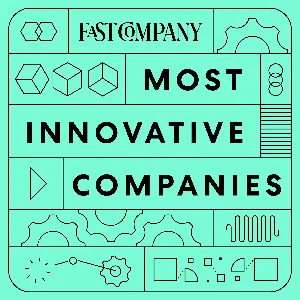American policy is uniquely hostile to families. Other wealthy countries guarantee paid parental leave and sick days and heavily subsidize early childhood care — to the tune of about $14,000 per year per child, on average. (The United States, by contrast, spends around $500 per child per year.) So it’s no wonder our birthrate has been in decline, with many people saying they’re having fewer children than they would like.
Yet if you look closer at those other wealthy countries, that story doesn’t entirely hold. Sweden, for example, has some of the most generous work-family policies in the world, and according to the most recent numbers from Our World in Data, from 2021, their fertility rate is 1.67 children per woman — virtually identical to ours.
Caitlyn Collins is a sociology professor at Washington University in St. Louis and the author of “Making Motherhood Work: How Women Manage Careers and Caregiving.” To understand how family policies affect the experience of child-rearing, she interviewed over a hundred middle-class mothers across four countries with different parenting cultures and levels of social support for families: the United States, Sweden, Italy and Germany. And what she finds is that policies can greatly relieve parents’ stress, but cultural norms like “intensive parenting” remain consistent.
In this conversation, we discuss how work-family policies in Sweden frame spending time with children as a right rather than a privilege, how these policies have transformed the gender norms around parenting, why family-friendly policies across the globe don’t increase birthrates, how cultural pressures in America to be both an ideal worker and an ideal parent often clash, why many American parents feel it’s impossible to have more than one or two children, how cultural discourse has led younger women to “dread” motherhood and more.
Mentioned:
“Parenthood and Happiness: Effects of Work-Family Reconciliation Policies in 22 OECD Countries” by Jennifer Glass, Robin W. Simon and Matthew A. Andersson
“Is Maternal Guilt a Cross-National Experience?” by Caitlyn Collins
If you're interested in this topic, we also recommend checking out this series from the New York Times Opinion:
“Would You Have Four Kids if It Meant Never Paying Taxes Again?” by Jessica Grose
“Are Men the Overlooked Reason for the Fertility Decline?” by Jessica Grose
“If We Want More Babies, Our ‘Profoundly Anti-Family’ System Needs an Overhaul” by Jessica Grose
Book Recommendations:
Competing Devotions by Mary Blair-Loy
Mothering While Black by Dawn Marie Dow
Hope in the Dark by Rebecca Solnit
Thoughts? Guest suggestions? Email us at ezrakleinshow@nytimes.com.
You can find transcripts (posted midday) and more episodes of “The Ezra Klein Show” at nytimes.com/ezra-klein-podcast. Book recommendations from all our guests are listed at https://www.nytimes.com/article/ezra-klein-show-book-recs.
This episode of “The Ezra Klein Show” was produced by Annie Galvin. Fact-checking by Michelle Harris. Our senior engineer is Jeff Geld, with additional mixing from Efim Shapiro. Our senior editor is Claire Gordon. The show’s production team also includes Rollin Hu and Kristin Lin. Original music by Isaac Jones. Audience strategy by Kristina Samulewski and Shannon Busta. The executive producer of New York Times Opinion Audio is Annie-Rose Strasser. Special thanks to Jessica Grose and Sonia Herrero.








